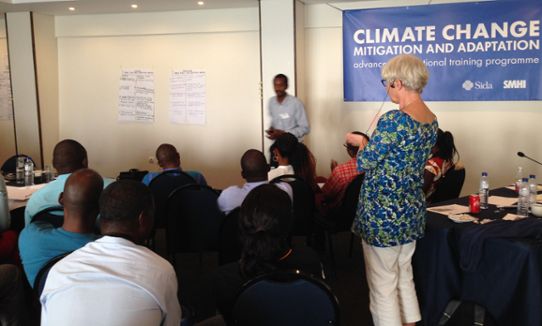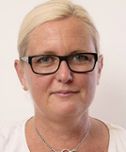SMHI takes a big stride in climate education for decision makers and key actors in Africa.
– We got off to a great start, the participants are now looking forward to coming in Norrköping in November. By 2020 we would have hosted ten programs for different regions of Africa. That means that 250 decision makers from nine countries would have undergone the half-year training programme, says Eleonor Marmefelt, Head of SMHI Capacity Development segment.

A multifaceted perspective on the climate issue
Climate education is very broad, encompassing for example, cutting edge climate research, impacts of climate change on water resources, agriculture and health; vulnerability assessment processes and how societies handle risks and adapt to a changing climate.

– There is also a great deal of focus on developing cooperation on climate change between different authorities and community based actors in the region. The programme can contribute to this as several key people participate in the training.
– SMHI has a lot of experience in this field, because we have the governmental mandate in Sweden to be the "National Knowledge Center for Climate Change, Eleonor continues.
Decision makers in water resources and agriculture
The 30 participants come from Botswana, Mozambique and Zambia. They hold key positions within more than twenty governmental agencies, universities and civil society. Everybody works with climate change in one way or the other, often with a focus on water and agriculture.
Mozambique concerned about the height of sea level
Climate change is already noticeable in Mozambique.

– Participants are worried about the consequences of rising sea levels as the country has a coastline several hundreds of kilometers long, says Cristina Alionte, a hydrology expert working on international cooperation at SMHI.
– Large areas risk going under water. There is also a great concern for grossly deteriorating water quality. The island of Inhaca is already experiencing deterioration in drinking water,
and its vulnerable coastal zones are likely to be destroyed.
Contribution to regional cooperation
– The group discussions and the high level of knowledge the participants themselves possess in the field of climate is inspiring, says Klas Svensson from Sida, the Swedish International Development Agency, which tasked SMHI with the mission to implement the programmes.
– A clear added value is that these experts from three neighboring countries have the opportunity to exchange experiences which could really lead to the development of sustainable solutions through regional cooperation, Klas concludes.